#study phd in canada
Explore tagged Tumblr posts
Text
PhD Scholarships in Canada For Indian Students

Canada is an excellent option to consider for a PhD Degree. It is a well-known fact that Canada is among the most preferred study destinations in the world. PhD in Canada is a lot more affordable than in other countries like the US or the UK. To make it more affordable for international students who are excellent in their academics, the Canadian Government offers a lot of PhD scholarships.
Canada is well-known for institutions of higher education that boast of academic excellence and world-class research. Moreover, many provinces in Canada have been actively seeking to retain sources of skilled labour. With an average base salary that hovers around CAD 90,000 a year, a PhD degree from Canada can be a great career choice.
Studying in Canada can be quite an expensive affair, universities in Canada offer several types of financial aid. Students may also avail following Canadian scholarships to support their education in the country.
Vanier Canada Graduate Scholarships
The Vanier Canada Graduate Scholarships (Vanier CGS) is a merit-based scholarship established to attract the most talented PhD students from around the world. This scholarship is awarded by the government of Canada to International students pursuing a doctoral degree in any of the Canadian educational institutes. The number of funds awarded every year is about CA $50,000. In total, the funds are provided for three years and are non-renewable.
The University of British Columbia Four-Year Doctoral Fellowship
UBC’s four-year doctoral fellowship is a fully-funded scholarship that is offered to both permanent residents of Canada as well as international applicants. The scholarship offers CAD 18,200 as a stipend apart from covering the full tuition fees. The award may be offered for up to four years.
The Ontario Graduate Scholarship
This scholarship is for international students with valid study permits on the date of application for the scholarship. The students must be enrolled in public universities in Ontario to be eligible for this grant. It is awarded at the master’s and doctoral levels of study. The amount that can be availed is between CAD 10,000 to CAD 15,000.
Ontario Trillium Scholarship
This scholarship was introduced back in November 20210 and has since then been offered to doctoral students from all across the globe who come to study in the province of Ontario. The selecting committee is within the Ontario universities themselves which select international PhD students based on their academic merit. The Ontario Trillium Scholarship offers up to CAD 40,000 per year for four years to PhD scholars.
The Pierre Elliott Trudeau Foundation doctoral scholarships
The Pierre Elliott Trudeau Foundation PhD scholarship is a leadership programme that is designed to train emerging leaders and to allow PhD students to enhance their skills so that they can be employed for the benefit of society. Applicants may avail up to CAD 40,000 per year for three years towards tuition fees and other expenses and around CAD 20,000 per year for three years to learn new languages, for accommodation and travelling purposes.
Banting Postdoctoral Fellowships
This fellowship is for doctoral international and Canadian students (PhD) who are contributing to Canada’s growth in economics, social sciences, natural sciences, and healthcare sectors through their research. Under this fellowship, about 70 students get provided with funds worth CA $70,000, which is taxable for two years.
University of Alberta Graduate Entrance Scholarship
The University of Alberta Graduate Entrance Scholarship is awarded to graduate applicants who enrol into master’s or PhD programmes at the university. The scholarship offers a stipend of up to CAD 21,000 for PhD students and an additional CAD 10,000 for international students to help them cover the cost of tuition.
University of Manitoba Graduate Fellowship (UMGF)
The UMGF is offered to full-time students of master’s and PhD programmes at the University of Manitoba. The scholarship is awarded to those students who showcase exceptional academic capabilities. The scholarship’s value is CAD 18,000 per year for up to 4 years.
University of Waterloo Graduate Scholarship
The University of Waterloo Graduate Scholarship is awarded to all graduate students who have registered for full-time Master’s or PhD programmes. It is open to all programmes and disciplines and the eligible students are selected automatically by the respective departments. The scholarship is valued at CAD 1,000 per term for three terms.
McGill University’s Dr. Robert G.H. Lee Fellowship
The Dr. Robert G.H. Lee Fellowship is offered at McGill University for those graduate students who apply to a master’s or a PhD programme. It is provided to those graduates who are applying to the Faculty of Engineering at McGill University. The scholarship offers up to CAD 10,000 to those who qualify and can be renewed up to 2 times at the PhD level.
Canadian Commonwealth Scholarship & Fellowship Plan
This scholarship is exclusively for international students from commonwealth countries who apply to master’s programs or PhD in Canadian universities. Students with high intellect are recognised and awarded financial aid. This award covers all travelling and living expenses along with the compulsory tuition fees of the awarded applicant. The amount of funds depends on the programme in which the awardee is enrolled.
Visit this website for complete details...
PhD Scholarships in Canada For Indian Students
#indian students#canada#phd abroad with scholarship for indian students#phd#phd in foreign universities#phd guidance#phd student#phd topics#phd research#academics#education#youtube#study abroad#abroad education#travel abroad#abroad consultancy
0 notes
Text
Top 10 PhD Scholarships In Canada For Indian Students 2024

Embarking on a doctoral journey is a significant step towards academic excellence, and Canada has emerged as a promising destination for Indian students pursuing their PhD dreams. With its world-class universities and diverse research opportunities, Canada attracts scholars from around the globe. If you are an Indian student aspiring to pursue a PhD in Canada, the good news is that there are several scholarships available to support your academic endeavors. In this article, we will explore the top 10 PhD scholarships in Canada for Indian students in 2024.
Why PhD Scholarships is Important in Canada?
PhD scholarships in Canada, like in many other countries, play a crucial role in promoting and supporting advanced education and research. Here are some reasons why PhD scholarships in Canada are important:
Attracting Talent: Scholarships make pursuing a PhD more financially feasible for talented and qualified individuals. By offering scholarships, Canada attracts bright minds from around the world, contributing to the diversity and richness of its academic community.
Promoting Research Excellence: PhD scholarships allow students to focus on their research without the burden of excessive financial concerns. This enables them to dedicate more time and energy to producing high-quality research, ultimately contributing to the advancement of knowledge and innovation.
Global Competitiveness: Offering competitive scholarships enhances Canada’s position in the global academic landscape. It helps Canadian universities attract top-notch researchers and students, fostering an environment of academic excellence and collaboration.
Addressing Financial Barriers: Pursuing a PhD can be financially challenging, given the years of dedication required for research and the limited opportunities for part-time employment. Scholarships help alleviate financial barriers, making it more accessible for individuals to pursue doctoral studies.
Retention of Talent: By providing financial support, scholarships contribute to retaining talented individuals within the Canadian academic and research community. This helps build a pool of experts and leaders who can contribute to various sectors, including academia, industry, and government.
Vanier Canada Graduate Scholarships
The Vanier Canada Graduate Scholarships aim to attract and retain world-class doctoral students by offering significant financial support. Open to both Canadian and international students, including Indians, this scholarship covers areas such as health, natural sciences, engineering, social sciences, and humanities. The Vanier Scholarship provides a substantial annual stipend, making it an excellent choice for Indian PhD aspirants.
Ontario Trillium Scholarship (OTS)
The Ontario Trillium Scholarship is specifically designed for international PhD students, and Indian scholars are eligible to apply. Administered by the Ontario government, this scholarship provides funding for research in fields such as science, technology, engineering, and mathematics (STEM). It covers tuition, living expenses, and incidental costs, making it a comprehensive financial support option.
Trudeau Foundation Doctoral Scholarships
If your research aligns with the four themes of the Trudeau Foundation — human rights and dignity, responsible citizenship, Canada and the world, and people and their natural environment — then the Trudeau Foundation Doctoral Scholarship is an excellent opportunity. Open to international students, including Indians, this scholarship supports innovative and impactful research.
Pierre Elliott Trudeau Foundation Doctoral Scholarship
The Pierre Elliott Trudeau Foundation offers doctoral scholarships for students engaged in research related to the humanities and social sciences. Indian students pursuing PhDs in areas such as law, sociology, and political science may find this scholarship particularly beneficial. It not only provides financial support but also fosters a community of scholars for interdisciplinary collaboration.
Commonwealth Scholarship and Fellowship Plan (CSFP)
Administered by the Government of Canada, the Commonwealth Scholarship and Fellowship Plan is open to students from Commonwealth countries, including India. This scholarship supports PhD candidates in various fields and covers tuition, living expenses, and travel costs. The CSFP is a prestigious opportunity for Indian scholars to engage in advanced research in a Canadian academic setting.
Banting Postdoctoral Fellowships
While not exclusively for PhD candidates, the Banting Postdoctoral Fellowships are worth considering for Indian scholars aiming for postdoctoral research in Canada. These fellowships support researchers in the natural and social sciences, as well as health and engineering. Successful candidates receive financial support for research and living expenses.
Quebec Merit Scholarship for Foreign Students
If you are considering a PhD in Quebec, the provincial government offers the Quebec Merit Scholarship for Foreign Students. This scholarship is open to international students, including Indians, and covers all fields of study. It provides financial support for tuition and living expenses, making it an attractive option for those pursuing doctoral studies in Quebec.
University-specific Scholarships
Many Canadian universities offer specific scholarships for international students, and Indian PhD candidates can explore these opportunities by researching individual university websites. For example, the University of Toronto, McGill University, and the University of British Columbia have various scholarships designed to attract and support international doctoral students.
Mitacs Globalink Research Award
Mitacs Globalink Research Award is a unique opportunity for Indian PhD students to engage in research collaborations with Canadian universities. This award provides funding for research projects in various disciplines, fostering international research partnerships. It’s a valuable experience for Indian scholars looking to enhance their academic and research skills.
IDRC Doctoral Research Awards
The International Development Research Centre (IDRC) Doctoral Research Awards focus on research that contributes to the improvement of social, economic, and environmental conditions in developing countries. Indian PhD students conducting research with a global impact may find this scholarship beneficial. It covers research and living expenses while providing an opportunity to make a meaningful contribution to global development.
Conclusion
Embarking on a PhD journey in Canada can be a rewarding experience, and these top 10 PhD Scholarships In Canada provide invaluable financial support for Indian students. Whether your research interests lie in STEM fields, social sciences, or humanities, there are opportunities to turn your academic aspirations into reality. As you explore these scholarships, remember to thoroughly review the eligibility criteria, application process, and deadlines. With determination and the right support, your PhD dreams in Canada can become a reality.
0 notes
Text
While these tips don't encompass every challenge you might face during your Study Abroad Journey, I hope they provide a clearer picture before you embark on this new chapter. Embrace the experience with open arms, as it will be some of your most enjoyable and carefree years. And don't hesitate to seek professional help if you feel overwhelmed. Link: https://www.gradding.com/ca
#canada study abroad programs#phd in canada#canada immigration#canada#canadian#overseaseducation#study abroad#overseas education consultants#study loan
0 notes
Text
⏰ 🚨 attention please🙏🚨
Dear friends and compassionate supporters,
This is Eman Zaqout, from Occupied Gaza, Palestine. I am a Biotechnologist ,🩸💉 and scientific researcher contacting you at a really desperate moment.
I am seeking your assistance to raise funds for saving our lives, facing the starvation in Gaza and help me achieve my doctoral degree dream after being awarded OWSD PhD Fellowship for inspirational women🍉👩🎓


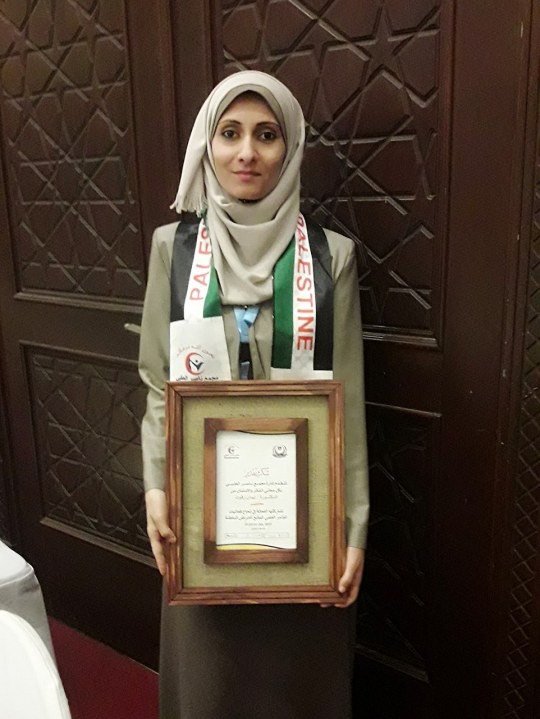

just like any motivated and loving life woman, and for years, I poured my heart and soul into my work at Al-Shifa Hospital and Turkish Palestinian Friendship Hospital, as Biotechnology Specialist serving cancer patients with compassion and skill.
photos of Turkish Palestinian Friendship Hospital before and after the IDF destruction


photos of Al-Shifa Hospital before and after the IDF destruction


I also gave medical lectures to students at different universities and training centers in Gaza👇☑
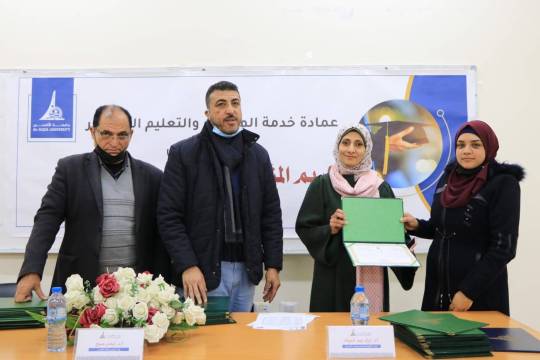
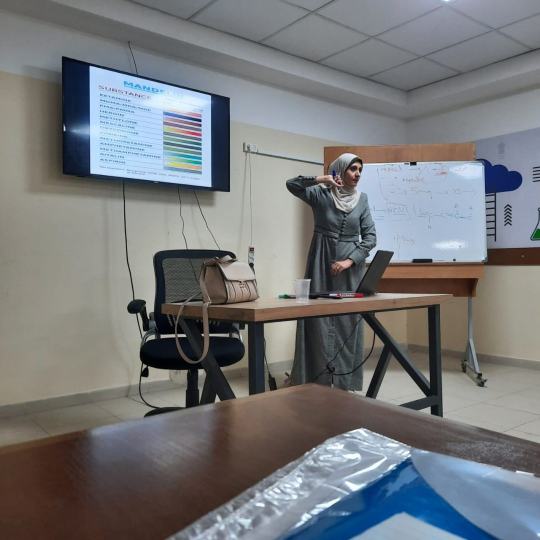
As a result of my outstanding grades in my study and the excellent performance in my job, I have been a holder of different scholarship and I am active participant in many research visits and scientific missions. 💪The last scholarship as at McGill University in Canada three months ago before the starting of the genocide in Gaza.😫
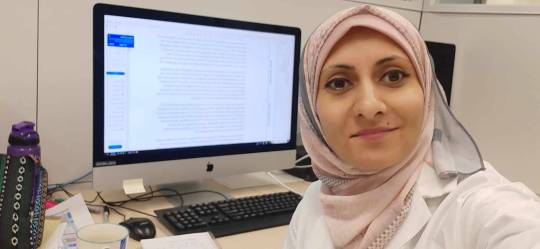


However,😥
My life changed dramatically when Israeli military launched a sweeping war against Gaza. My home and our neighborhood in the North have been destroyed along with our belongings and precious memories early in this crisis.😢💔


My job and my husband's job are gone. Israeli military forced us to evacuate from the north Gaza to the south where they claimed it would be the safe zone but it is not at all. Our sweet home and neighborhood have been destroyed 😥😭💔
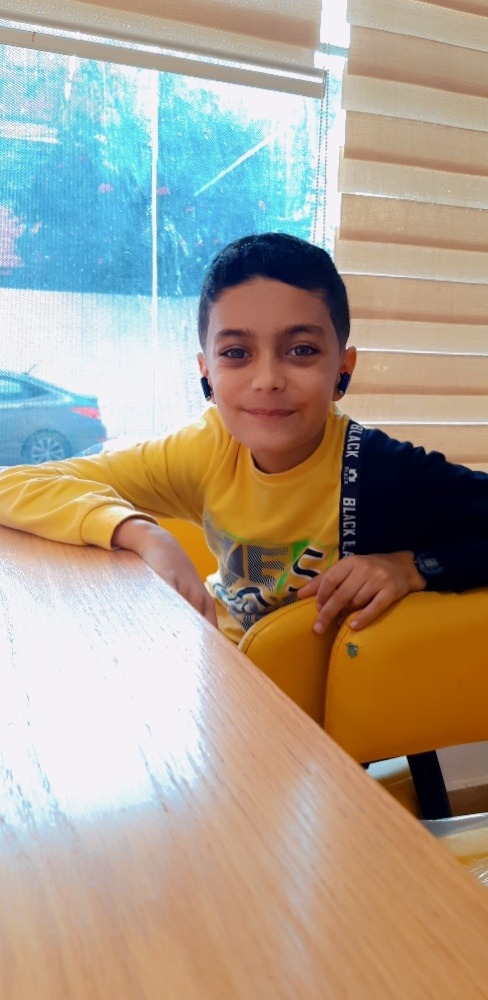
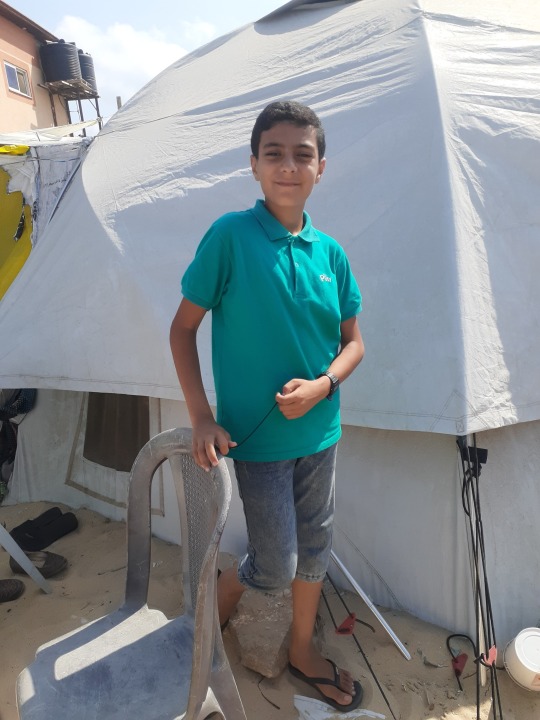
Forced to flee with nothing but the clothes on our backs, today, we find ourselves sheltering in a displacement camp lacking access to sanitation, medical supplies, food and drinkable water. I will not talk a lot about the dire and unbearable life we have to go through, as no word can express it fairly 🥺😣
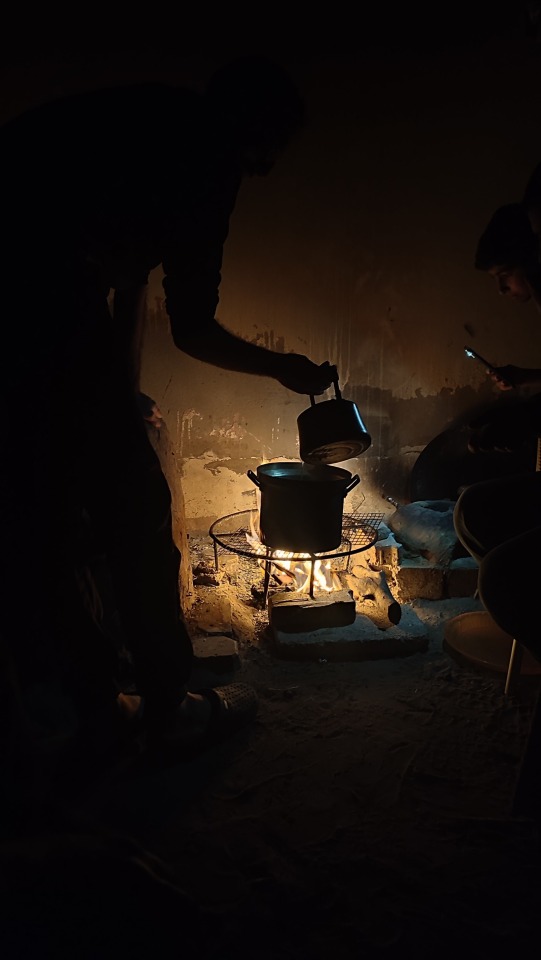

The good news in the midst of this tragedy, that I am one of the 22 women from the developing world who have been awarded OWSD- PhD fellowship to pursue my PhD study in Malaysia🍉💪. But now I am stuck in Gaza unable to achieve my dream because Israeli army has occupied and closed all the border crossings 😭💔
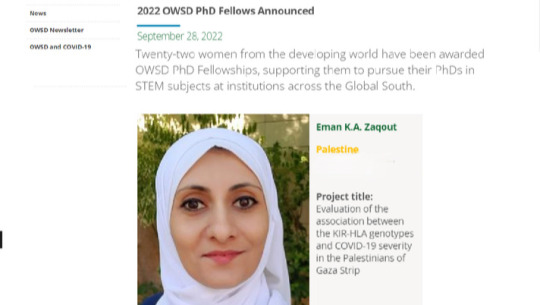
Meet 22 fellows awarded OWSD PhD fellowship
This genocide has been 11 months of hell and horror. We have reached a point where there is no hope left for us here in Gaza, where we are unfortunately just waiting for our turn to die.
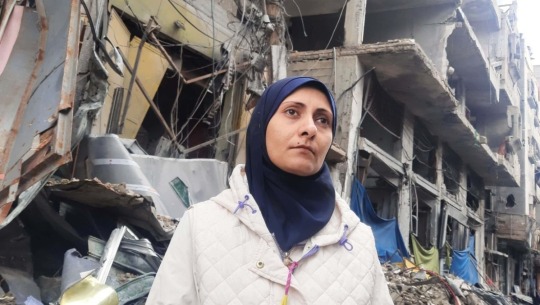
Nevertheless,
I refuse to succumb to despair, holding on to the belief that brighter days lie ahead.
With your kindness and generosity🥺, I hope to survive the genocide and reclaim the path to achieving my doctorate 💉🩸
Your compassionate aid would mean the world to me and my family.🥺🙏❤🇵🇸✌
#free 🍉#from the river to the sea palestine will be free#free palestine#gaza genocide#gofundme#palestine gfm#donations#donate if you can#save palestine#free gaza#gaza strip#save gaza#war on gaza#signal boost
2K notes
·
View notes
Text
Nursing Programs in Canada: Eligibility, Costs, and Procedures - Canadian nursing programmes are well-regarded and in high demand around the world. Nursing graduates are qualified for positions in healthcare all across the world. If you want to study nursing programmes in Canada, you can find all the information you need about these programmes in this article, including eligibility, costs, procedures, and colleges offering nursing programs.
#Bachelor of Science in Nursing#Nursing Degree Canada#Nursing Programs in Canada#PhD in nursing in Canada#Study Nursing in Canada#top nursing schools in Canada#Top Universities in Canada#myglobaluni
0 notes
Text
Update: The survey is closed. Thank you all so much for taking the survey and sharing it. I'm currently in the process of analyzing the survey data. I will use this post to give everyone updates. Below are the next steps.
- Survey closed: 11/30/2023
- Raffle drawing: TBD. Deadline: Likely winter 2023
- Results: TBD. Published likely mid 2023-mid 2024 (academic publishing can take a while)
--------
Are you a trans, nonbinary, or gender diverse video game player living in the US/UK/Canada? You are invited to participate in this survey on avatar creation and customization. Follow the link for more information. :) survey respondents will be entered into a drawing for a $25 gift card for their online gaming store of choice ♥️🎮🏳️🌈
https://tinyurl.com/avatarstudyinfo
Who am I? I'm Xan (they/he) :) I am a PhD student at Indiana University and I study avatar creation and play for gender diverse gamers
#transgender#lgbtqia#agender#gaymer#gender#genderfluid#trans#transfem#transmasc#enby#nonbinary#nb#gnc#gender nonconforming#genderqueer#trans man#trans woman#mmorpg#non binary#trans joy#ftm#mtf#lgbtq community#lgtbqia+#queer
1K notes
·
View notes
Text
Also preserved in our archive (Daily updates!)
Authors
Julia M. Wright George Munro Chair in Literature and Rhetoric, Dalhousie University
Dick Zoutman Professor Emeritus, Medicine, Queen's University, Ontario
Mark Ungrin Associate Professor, Department of Comparative Biology & Experimental Medicine, Faculty of Veterinary Medicine, University of Calgary
Ryan Tennant PhD Candidate, Systems Design Engineering, University of Waterloo
Canada’s postsecondary institutions have a responsibility to protect students and others on campus from the risks of post-COVID condition as a matter of campus safety.
Canada’s Chief Science Advisor, Mona Nemer, recently released the report, Dealing with the Fallout: Post-COVID Condition and its Continued Impacts on Individuals and Society.
Post-COVID condition (PCC), also known as “long COVID,” refers to the poorly understood and often serious health damage left by the SARS-CoV-2 virus after the acute illness appears to have passed.
Universities, colleges and schools have a duty to take reasonable precautions to protect students, staff and faculty from foreseeable harms. They must ensure the water on campus is safe to drink. They must install fire and carbon monoxide detectors and make evacuation plans. Many have adopted a smoke-free policy on campus as part of a commitment to an international charter on health promotion in universities and colleges. Yet there is little pandemic health promotion on Canadian campuses.
The authors of this story bring together expertise in higher education, engineering, biomedical sciences, medicine and the health humanities. As a few of us noted in a recent peer-reviewed article on the pandemic for BMC Medicine, “COVID-19 is airborne, transmitted primarily via infectious aerosols that move through the air like smoke.”
As with any other pathogen (or smoke, for that matter), if it can’t get into your body, then it can’t make you sick. The Chief Science Advisor’s report recognizes the vital importance of reducing PCC cases by reducing infections.
Post-COVID condition A COVID-19 infection can be the tip of a very large iceberg. A Statistics Canada report last year indicated that Canadians have lost millions of school and work days because of PCC. PCC has a long list of possible symptoms, including negative effects on brain functioning, mental health, as well as cardiovascular and lung health.
The Chief Science Advisor’s report notes that “with each SARS-CoV-2 reinfection, the risk of developing PCC is cumulative.” Postsecondary students are particularly vulnerable to repeated COVID-19 infections because of shared living spaces (dorms, student housing) and frontline work (waiting tables and retail jobs, for instance), and transmission can be boosted by extensive mixing due to complex timetables and crowded spaces on campuses.
While we lack specific data on sick days and long COVID cases at the postsecondary level in Canada, national data suggests over 40 per cent of Canadians were infected over a three-month period last winter. There are about two million postsecondary students in Canada.
Postsecondary students are inevitably affected by the multiple surges in infections each year, and so are losing days to acute COVID-19 illness. And, with each infection, they are at increased risk of PCC. This is key to understanding the pandemic’s ongoing disruptions to education and well-being for the current generation of college and university students. A study of U.S. university students with PCC noted symptoms such as “difficulty thinking, fatigue, feeling anxious” and “memory loss,” consequential for academic performance and overall well-being.
Reducing infections
We have abundant high-quality peer-reviewed scholarship from a range of disciplines to help us reduce infections. Building on this evidence base, the Chief Science Advisor’s report calls for “protective measures through steps that government, institutions and employers can take.” These protections include “improved indoor air quality,” better “public messaging” and “effective masking in crowded spaces.”
Improving indoor air quality includes increasing ventilation rates, adding high quality filters to the air handling systems, the use of portable air filtration units, germicidal ultraviolet lights, and the monitoring and public display of carbon dioxide levels in all living and learning spaces on campus. Improving indoor air quality has been shown to reduce in-classroom transmission of COVID-19 by at least 80 per cent in schools.
Free N95 masks and updated vaccinations should also be made available, and their use promoted on campuses to improve awareness and access. Communications should educate students on reducing their risk. Drawing on faculty expertise from all disciplines, and with little financial cost, postsecondary institutions can implement and model best practices on all of these fronts.
Organized, evidence-informed efforts are also urgently needed to accommodate students whose coursework has been significantly affected by infection or PCC. PCC includes a wide range of symptoms at varying levels of severity, so no cookie-cutter approach will work well.
The pandemic’s ongoing effects Institutions lack even the most basic data about PCC on campus. How many people on campus are already affected by PCC and to what degree? How many are on extended leave or had to withdraw or resign because of it?
Transdisciplinary faculty and student expertise and lived experience can help institutions to understand the pandemic’s ongoing effects. This is a necessary step to the development of more inclusive and effective approaches to mitigating the harms of the pandemic.
Without efforts to reduce students’ risk of getting sick — and to meaningfully help them when they do — we can only expect more population-level problems with well-being, ongoing health-care needs and academic success. These effects have the potential to ripple into the general workforce, adding to population and economic consequences. While the pace of research on COVID-19 has been and continues to be fast, new discoveries will not erase the lost educational days and other long-term harms that are already putting pressure on this generation.
The burden of PCC and the pandemic will will shape the next half century, and it is in everyone’s interest that our postsecondary institutions start working now to limit these harms.
#mask up#public health#wear a mask#pandemic#wear a respirator#covid#still coviding#covid 19#coronavirus#sars cov 2
19 notes
·
View notes
Text
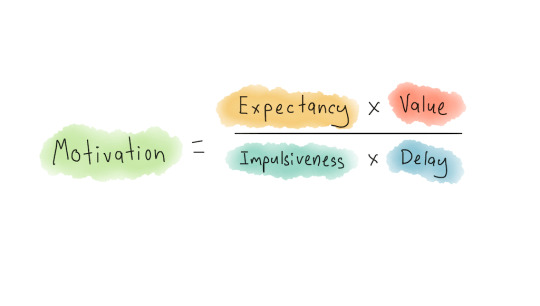
Book: The Procrastination Equation Subtitle: How to Stop Putting Things Off and Start Getting Stuff Done Author: Piers Steel, PhD Publisher: Random House Canada Year: 2010
This isn't going to be a really formal book review or anything, I just thought I'd provide you guys with the pertinent information, in case you want to read it yourselves. :)
So, basically, Piers Steel is an industrial psychologist who specializes in procrastination. He teaches at the University of Calgary, in the Haskayne School of Business. He started studying procrastination because he procrastinated, so once again we have an expert who used his own problems to influence his studies. :D
The procrastination equation isn't a real equation - that is, it's not something you can plug actual numbers into and figure out what your procrastination number is. It's more of a theoretical approach to the definition of procrastination, that explains how and why people procrastinate. Written as a mathematical equation, it looks like the picture at the top of this post.
In other words, what we expect to receive for a task, multiplied by its intrinsic value (to us), all divided by how impulsive we are times how far away the due date is, equals how motivated we are to actually work on the task in question. The less motivated we are, the more we're going to put it off. This is why so many post-secondary papers are written the night before they're due: the papers are assigned months ahead of time, there is no certain expectancy of a good grade, and young adults are rather impulsive and don't really like working hard on things anyway. So the motivation to write the paper is really low until just before it's due.
One of the things I found really interesting about this book was the stuff about how brain function affects procrastination. Basically, it's the conflict between the limbic system and the prefrontal cortex that buggers us up. In reading about this, I kept thinking to myself, "he's describing ADHD!" but he never uses the term once, in the entire book.
The limbic system is the part of our brain that makes us do things when we want to do them. It's basically the seat of impulsivity. (Oh, by the way, he uses the word "impulsiveness" throughout the book. I prefer "impulsivity," even if my spell checker doesn't believe it's a word.) The limbic system is perfect for a hunter-gatherer society. Of course, evolution means that we are always perfectly designed for the environment we no longer live in. :)
The prefrontal cortex is the part of the brain that deals with executive functioning. It's where we make plans, follow through on plans, and all that other great stuff that is basically contrary to the nature of the limbic system.
On to the practical stuff...
First there was a self-assessment quiz (it's in chapter two, if you decide to read the book). People procrastinate because they have low expectancy, low value, or high impulsivity. As it turns out, my problem is mostly with impulsivity. In other words, I postpone doing things until the last minute because other stuff keeps catching my attention. I do the other things first, not because I don't think the first tasks are important (value) or will pay off in the end (expectancy) but because whatever it is that I end up doing instead is just way more interesting in the moment--long-term thinking just isn't my strong suit. (I'm pretty sure this is due to ADHD because I would always do all the research for a paper right when it was assigned, and then sit on my notes and let things percolate until the night before it was due. So I'd be completely prepared for the assignment and not complete it, even though I had everything I needed in order to do so.)
Chapters 7-9 are the ones that have the actual practical approaches to combat procrastination. I took notes on all of them, but of course not all of them are techniques that are going to be useful for me. I'm going to copy my notes anyway, though, because some of you guys might get something out of it, too. :)
Each bold header below has to do with a reason for doing something; the italicized sub-headers are the names of the ways you can deal with problems in that area, and are followed by explanations of how the methods work.
Expectancy
Success Spirals (+)
Set an ongoing series of challenging but ultimately achievable goals; maximize motivation and make the achievement meaningful.
Think of an area of life of real interest and strive to improve just a little beyond your current skill set.
Break town the tasks that daunt you into smaller and smaller pieces. Keep formal track of your progress. Count your successes.
Vicarious Victory (+)
Find an inspirational role model and/or a positive social peer group.
Seek inspiration from stories or others; it is easier to believe in yourself if you are surrounded by people who believe in themselves--or you!
Join a community, service, or professional organization.
Start your own support group; can be anyone, as long as it is mutually encouraging friends.
Wish Fulfillment (+)
Visualization, either mental contrasting (what you want vs what you have) or creative visualization (what you want, as per The Secret; not as effective as contrasting).
Think about the life you want; focus on just one aspect (break it down!); elaborate on what makes it attractive (e.g., diary, collage, quiet concentration); mentally contrast future with present, focusing on the gap.
Plan for the Worst, hope for the Best (-)
Rather than believing you can entirely and easily beat the problem of procrastination, believe that you can beat it down.
Determine what could go wrong, reflect honestly on past experiences, and ask for advice; list ways you habitually procrastinate and post it where you work; avoid pre-determined risks as much as possible; develop a recovery plan ahead of time; use the recovery plan.
Accept that You're Addicted to Delay (-)
Acknowledge powerlessness over procrastination: truly acknowledging that any single failure of willpower inevitably leads to the collapse of all your self-control gives you far more motivation than believing that occasional lapses can be safely contained.
Keep a daily log of procrastination habits; acknowledge that a weak will is the biggest problem, and "just once" is the beginning of the end; accept that the first delay justifies all the rest of them.
Value
Games and Goals
Finding the balance between the difficulty of your task and your ability to do it is a key component for creating flow, a state of total engagement.
The rist of procrastination diminishes when tasks are relevant, instrumentally connected to topics and goals of personal significance.
You need a string of future goals that you find intrinsically motivating to hook your present responsibilities onto.
Frame long-term goals in terms of the success you want to achieve (approach goal) rather than the failure you want to prevent (avoidance goal).
Make tasks more challenging; connect tasks to long-term goals (what you find intrinsically motivating); frame goals in terms of what you want to achieve rather than what you want to avoid.
Energy Crisis
Spoons (mental and physical).
Do difficult tasks at peak performance times; don't get hungry; exercise lots; make sleep predictable; respect your limitations.
You Should See the Task I'm Avoiding
Doing other things instead of the thing we're supposed to be doing - getting things done, but not the "right" thing.
Identify something you've been putting off, then things that are more enjoyable and do them instead/first.
Double or Nothing
Procrastinators tend not to reward themselves for getting things done.
Anticipated rewards make the work more enjoyable, which helps winning.
List rewards you can self-administer, promise yourself these rewards; consider ways of making tasks more enjoyable (pairing) without overriding the work.
Let Your Passion be Your Vocation
Finding work you want to do is a major step toward avoiding procrastination.
http://online.onetcenter.org/find/descriptor/browse/Interests
Look at careers involving activities you love or like doing; filter out all the occupations for which you don't possess skill or ability; rank by demand.
http://careervision.org
Impulsivity
Commit Now to Bondage, Satiation, and Poison
As you get closer to a temptation, your desire for it peaks, allowing the temptation to trump later but better options.
Throw away the key: eliminate the alternatives.
SatiationL meet your needs in a safe and managed manner before they intensify and take control (schedule recreational activities first, then add chores - "unschedule").
Try poison: punish failure.
http://www.stickk.com/
Identify your temptations, then...
Put them out of reach or far away;
Satisfy your needs first; or
Add disincentives to make them unattractive.
Making Paying Attention Pay
Inside out: pay attention please!
Frame in terms of abstract and symbolic features.
Ascribe negative qualities and consequences.
Outside in: now you see it, now you don't.
Regain stimulus control by making it harder to access or even notice the temptations.
Declutter and replace the clutter with triggers for tasks you usually procrastinate on.
Make workplace a cue by working until motivation disappears; then go elsewhere to goof off (this could be just another profile ont he same computer so you have to log off and back in if you are going to goof off).
Use covert sensitization to make distractions less inviting; focus on abstract aspects of temptations; eliminate cues; replace distraction cues with work-related cues; compartmentalize work and play as much as possible.
Scoring Goals
The finish line is just ahead.
Set corporeal goals with real deadlines, use mini-goals to get started on a task, structure the goals so that they are appealing (i.e., inputs [time invested] vs outputs [what's produced]).
Full automatic.
Intentionally adopt a routine; make an explicit intention to act (if-then is pretty good for this).
Frame your goals in specific terms so that you know precisely when you have to achieve them; break down long-term goals into a series of short-term objectives; organize your goals into routines that occur regularly at the same time and place.
"Optimal self-control involves not the denial of emotions but a respect for them."
134 notes
·
View notes
Text
“Below are a nearly a dozen different factors that can sometimes influence a person's sense of sexual identity. Rather than saying any of these things "cause gender dysphoria," it is more accurate to say that they could contribute to a person feeling dysphoric about his or her body. Some individuals might find that some of the factors resonate deeply with them, while others might not relate to any of them. The goal isn't to provide an exhaustive list, but to encourage individuals who experience gender dysphoria to listen with compassionate curiosity to their own story.
Family dynamics
Various situations can contribute to unhealthy attachments related to gender dysphoria.(39) One is when parents hope for their baby to be a sex other than the one they receive. If this is expressed to a child, he or she may internalize the parent's disappointment regarding his or her sex. Sometimes the child is the sex that the parent had hoped for, but wasn't what they had expected. For example, as a little girl, Heather Skriba enjoyed playing with action figures and camouflage, which created tension between her and her father. He said to her, "I always wish that I had a daddy's girl as a daughter." Heather recalled:
What that communicated to my eight-year-old heart was like I'm not the daughter that my dad wants. Being around my version of femininity brings my dad pain, like it's defective, it's not good enough, and I internalized that as my identity, as my value. So that caused me to develop a lot of social anxiety, a lot of insecurity, a ton of self-hatred.(40)
Later, she realized after trying to transition that it wasn't just a hatred and discomfort about her sexual identity, it was a discomfort in who she was as a person. In her words, "It wasn't just, 'I don't like being a woman, it was like 'I don't like being me. ... At the end of the day it was like this tired, lonely, really hurt little girl who just needed love."
-Jason Evert, Male, Female, or Other: A Catholic Guide to Understanding Gender
—
Work cited:
39) Cf. Kenneth J. Zucker and Susan J. Bradley, Gender Identity Disorder and Psychosexual Problems in Children and Adolescents (New York: Guilford Press, 1995); J. Veale et al., "Biological and Psychosocial Correlates of Adult Gender Variant Identities: A Review," Personality and Individual Differences 48 (2009), 357-366; H. Meyer-Bahlburg, "Gender Identity Disorder in Boys: A Parent- and Peer-Based Treatment Protocol," Clinical Child Psychology and Psychiatry 7:2 (2002), 360-376; P. Cohen-Kettenis and W. Arrindell, "Perceived Parental Rearing Style, Parental Divorce and Transsexualism: A Controlled Study," Psychological Medicine 20 (1990), 613-620; M. Hogan Find lay, Development of the Cross Gender Lifestyle and Comparison of Cross Gendered Men with Heterosexual Controls (PhD diss.; Carleton University, Ottawa, Canada, 1995); R. Schott, "The Childhood and Family Dynamics of Transvestites," Archives of Sexual Behavior 24 (1995), 309-327; D. Ghering and G. Knudson, "Prevalence of Childhood Trauma in a Clinical Population of Transsexual People," International Journal of Transgenderism 8 (2005), 22-30.
40) "Transgender and the Gospel: A Conversation with Heather Skriba," https://www.youtube.com/watch?v=eKuftYuby5I&ab_channel=PrestonSprinkle
—
For more recommended resources on gender dysphoria, click here.
#Mtf+#Ftm#Nonbinary#genderfluid#transgenderism#transgender ideology#Jason Evert#quotes#Male Female Other: A Catholic Guide to Understanding Gender
14 notes
·
View notes
Text
Ya'll bitches who watched Masters of The Air?? Our boys Cleven and Crosby went WILD in academics.
Buck:
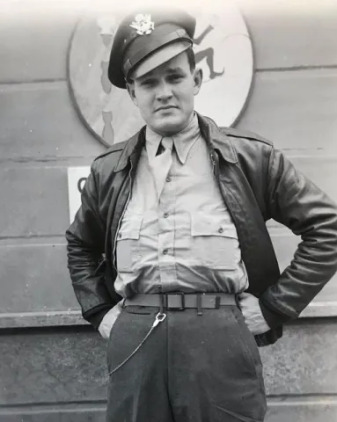
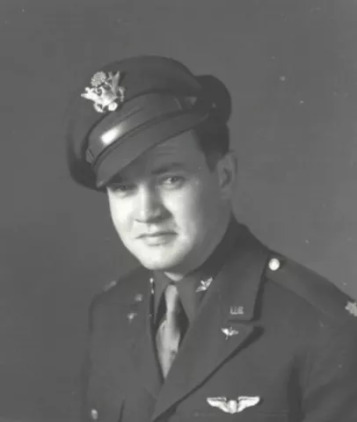
"After the Second World War, Cleven stayed in the US Air Force serving in Korea, Vietnam and with a spell at the Pentagon. He retired in 1964 with the rank of Colonel. While in the service Cleven had earned an MBA from Harvard Business School and a doctorate in physics and following retirement initially worked in IT for Hughes Aircraft. Later he took over the management of Webber College in Florida which at the time had only fifty students and a poor reputation. He was able to turn it around and it later became a university specializing in business studies. " - Gale Winston Cleven | American Air Museum IM SORRY A FUCKING DOCTORATE IN PHYSICS???? COLONEL. DR. GALE WINSTON "BUCK" CLEVEN???? Croz:
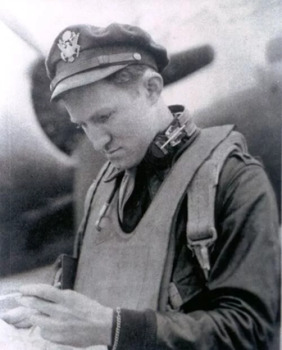
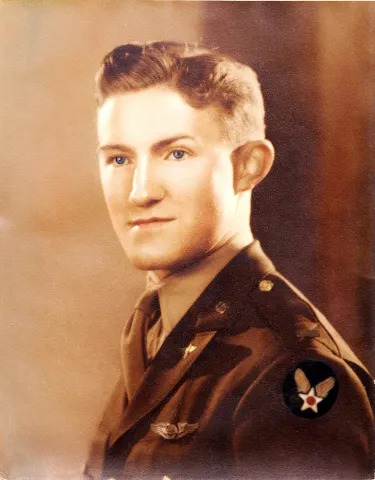
"On returning to the US, Crosby resumed his studies, completing his M.A. in 1947 and his PhD in 1953. He taught English composition, writing several books on the subject. He also carried out work for the US Air Force Academy and the Pakistan Air Force Academy. In 1993, Harper Collins published his memoir of his wartime experiences, titled A Wing and a Prayer." - Harry Herbert Crosby | American Air Museum
"Returning to school, Crosby graduated from the University of Iowa in 1947 with his master's degree, and then earned his PhD from Stanford University in 1953, where Wallace Stegner supervised his dissertation. Harry taught English composition and American literature at the University of Iowa, and was the Writing Supervisor of the Rhetoric Program (1950–1958).[2]
In 1958, Crosby moved with his wife and four children to Newton, Massachusetts, for a faculty position at the College of Basic Studies (CBS) at Boston University. He retired from Boston University in 1984, after chairing the Department of Rhetoric at CBS and authoring or co-authoring with CBS colleagues six textbooks on college writing:[2]
College Writing – The Rhetorical Imperative; Harper & Row, 1968 Just Rhetoric, Crosby/Esty; Harper & Row 1972 The Shape of Thought: An Analytical Anthology, Bond/Crosby; Harper & Row, 1978 Building College Spelling Skills, Crosby/Emery; Little Brown; 1981 Better Spelling in 30 Minutes a Day, Crosby/Emery; Harper Collins 1994 Skill Builders – A Spelling Workout, Crosby/Emery; Harper Collins, 1997
During his early retirement, Crosby served as Director of the Writing Center at Harvard University." - Harry Herbert Crosby - Wikipedia CROZ GRADUATED FROM FUCKING STANFORD, A PHD TOO!!! in conclusion, these boys are academic weapons P.S. Croz's Autobiography in case any of ya'll were interested: Amazon.com: A Wing and a Prayer: The "Bloody 100th" Bomb Group of the US Eighth Air Force in Action Over Europe in World War II: 9781504067331: Crosby, Harry H.: Books and a list of libraries it's in across the world: A wing and a prayer : the "Bloody 100th" Bomb Group of the U.S. Eighth Air Force in action over Europe in World War II | WorldCat.org
Mostly USA but as of (5/29/24 or 29/5/24) there are
457 in USA 8 in Canada 1 In Ireland (Dublin) 35 in UK
if you chose yes^ feel free to dm me/send an ask with facts or stories you find and i'll try my best to post them!! (you can send pictures with too!! my discord is badger_iii)
#hbo war#gale cleven#mota#harry crosby#masters of the air#buck cleven#ww2 history#the bloody hundredth#100th bomb group
33 notes
·
View notes
Note
My social media culture professor said I was so good at folklore studies that he asked me to do a thesis so that he could apprentice me. Also said I should go to NFL Canada to do a master's degree. And while this is all very satisfying, I now must ask you, my local academic: I'm the most blue collar tradesman ever, I even have a welding license. How do academics. Like. Make money. The Particles don't pay you. How does someone to a master's-- going to school for a living-- and get.... Paid money
oh shoot can you not answer asks privately now ?? D: well....heres my spiel about grad school funding
getting income as a masters student can be a challenge. in general this is a tough thing to answer bc graduate school funding varies wildly based on country, school, program, and even research group.
however in general, a masters degree can, but will not always provide pay. if your PI has a grant, maybe they will fund you through the grant. If you can find a fellowship, something akin to a grad school scholarship, it can also help either pay or reduce tuition. but most schools treat it as a continued schooling, not a research job and wont provide pay on top of tuition remission automatically. There are other routes like TAships and work study that are still ""second jobs"" but are at least related to your field.
Some programs will fund their masters students automatically, some dont. some provide tuition remission, others dont. some do both, others do neither. that's part of the "it varies wildly" i was talking about.
A lot of Phd students have union contract stipulations that say we have guaranteed funding via research pay, teaching, or fellowships for several years. because phd students have significantly more secure funding on average, ive known of a lot of people who applied as a phd student even though they intended to master's out in their 3rd year anyway to have a stronger employment contract.
that being said, you could still ask a department of interest if they would offer GSR or TAships to masters students, as these are often the most secure way to fund grad school. this is much more likely if its a general program like psychology, chemistry, english, etc as opposed to art history for example since general programs supply service courses that service a ton of students. you might have 3,000 students that need a chemistry TA per year but only 300 who need an art history one, smaller class sizes require smaller TA pools.
but the problem is its really really hard to say because it depends on your situation wildly. this is the system for the schools i know of in STEM specifically, that have union protections, in this university system. some things im willing to bet are fairly common (for example that masters students do not have stable, guaranteed funding) but i have no idea if canada has different employment contracts for masters students. i know of a lot of masters students who have other jobs on campus too, but i'd also look into applicable fellowships for more stable support
17 notes
·
View notes
Text
0 notes
Text
Please Support My Education and Save Our Lives🙏
The Palestinian people are known as one of the most educated and knowledge-loving people in the world, with one of the lowest illiteracy rates. We have the ability to innovate and produce even in the most difficult circumstances, despite all the wars we have endured💪🍉👩🎓



I dream of continuing my studies to earn a Ph.D. after receiving a prestigious scholarship for pioneering women. However, I am currently stuck in Gaza and unable to pursue my educational journey and achieve my dream due to the war on Gaza💔😢

Meet 22 fellows awarded OWSD PhD fellowship
Please help me achieve my dream and preserve what remains of us by supporting my campaign. Thank you to everyone who has supported me at this challenging time🕊🌹💖
#free 🍉#from the river to the sea palestine will be free#gaza genocide#free gaza#free palestine#gofundme#donate if you can#save palestine#palestine gfm#donations#war on gaza#please#education#all eyes on palestine#vetted gfm
82 notes
·
View notes
Text
Cancer-causing chemicals are lurking in household electronics and children’s toys, despite being banned for more than a decade in Canada, a study out of the University of Toronto found.
The study, published Tuesday in Environmental Science: Processes & Impacts, says chlorinated paraffins were found in more than 87 per cent of tested household products, which ranged from baby rattles, toy cars, hand soap and headphones.
“We found quite high concentrations of these compounds in toys meant for children and toddlers, in particular, teething toys,” said Steven Kutarna, the study’s lead author and PhD candidate in Analytical Environmental Chemistry at the University of Toronto.
Another “surprising” product that was found to contain one of the highest concentrations of chlorinated paraffins was earbud wires, he said. [...]
The short-chain chlorinated paraffin (SCCP) toxin is not only a concern for the environment, according to Health Canada it is a “potential concern” for human health as “it was found to cause cancer in some experiments with laboratory animals.” [...]
Continue Reading.
Tagging: @politicsofcanada
#cdnpoli#health & safety#public safety#cancer tw#children's rights#that's what happens when you import everything
149 notes
·
View notes
Text
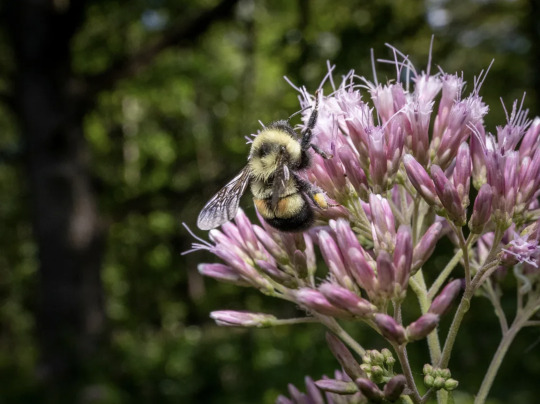
Excerpt from this story from Smithsonian Magazine:
On a sweltering summer day in Madison, Wisconsin, Jade Kochanski wades through a prairie bursting with wildflowers. Insect net in hand, she carefully scans the colorful blossoms. She’s on a mission to capture and identify the bumblebees that live there. If she’s lucky, she’ll discover a rare find—an endangered rusty patched bumblebee, named for the red-brown smudge that workers and males of the species sport on their backs.
Kochanski, a PhD student in integrative biology at the University of Wisconsin-Madison, meticulously measures the bumblebees she captures and snips off a tiny piece of leg, a common, non-lethal way to obtain genetic material from these creatures. Each sample she collects from rusty patched bumblebees is destined for a lab in Utah to help researchers uncover the genetic secrets critical to the bee’s survival. DNA analysis will help scientists estimate the number of colonies, identify patterns of inbreeding within those colonies, and understand overall genetic diversity and health of the rusty patched bumblebee populations.
Once common across the eastern United States and Canada, rusty patched bumblebee (Bombus affinis) populations have plummeted by nearly 90 percent over two decades due to habitat loss, pesticide use, pathogens and climate change, according to the U.S. Fish and Wildlife Service. Now, they are found in only a fraction of their former range, with scattered populations in the Upper Midwest and Northeast United States. In 2017, the rusty patch became the first bumblebee to be listed as endangered in the United States.
In response to listing, Kochanski joined a network of scientists who began collecting tissue samples from rusty patched bumblebees across its range. The initiative started in 2020 when Tamara Smith, the U.S. Fish and Wildlife Service’s lead biologist for the rusty patched bumblebee, organized a meeting with bumblebee researchers in Minnesota. Their goal: to identify conservation tools that could help save the species. “Genetics was the No. 1 question that came out of that [meeting],” says Smith. “We needed to get a handle on what was going on with this species if we wanted to move forward with some of the other tools that would help with conservation.”
Their research was published this past spring in the Journal of Insect Science and provides the first range-wide genetic study on the species. The findings offer key insights that can aid conservation of the species, but also raise questions and concerns about the ability of the species to recover. “Genetically, they’re not doing as well as we had hoped,” says Smith.
The study revealed a surprisingly low number of rusty patched bumblebee colonies, even in places where the bee seems prevalent. “We’ve seen the Upper Midwest as the stronghold of the species,” says John Mola, an ecologist at Colorado State University and lead study author, “but what we’ve seen from the genetic data is that even within these strongholds for the species, they are still far fewer colonies than we might have expected.”
Since only queens produce offspring, bumblebee populations are measured by colonies, not individuals. Each spring, queen bumblebees emerge from hibernation to create nests where they produce non-reproductive female workers that forage, nurse larvae and defend the nest. Later in the summer, queens switch to producing reproductive individuals, including males and new queens, which will form their own colonies the following year. Each colony can contain over 100 individuals. Thus, even if several worker bees are seen in an area, they could all come from just one or two large colonies.
According to the study, having few colonies poses significant risks, including making them vulnerable to local extinction from unpredictable events like fires on the prairies where they live. In light of the study, land managers will need to be more strategic with using prescribed burns for managing prairies within the bee’s range. To assist these efforts, as part of her dissertation, Kochanski is developing burn recommendations that balance the need for prairie maintenance with protecting bumblebees.
15 notes
·
View notes
Text
by Jon Levine
A Zionist organization is compiling names of foreign students on visas in the US who spewed anti-Israel bile at campus protests — and is hoping President-elect Trump will give the haters a one-way ticket back home.
So far, the group, Betar, has about 30 names of students from nations such as Jordan, Syria, Egypt, Canada, and the United Kingdom currently enrolled in some of the nation’s top universities, including Columbia, UPenn, Michigan, Syracuse, UCLA, The New School for Social Research, Carnegie Mellon, and George Washington University.
“We have started commencing lists of Jew-hating foreign nationals on visas who support Hamas,” said Ross Glick, director of the US chapter of Betar.
Betar has IDed the haters using a combination of facial recognition software and “relationship database technology” to weed out people who were busted at antisemitic campus protests over the last year.
“One of our issues is processing power, there is just so much video to work through,” Glick said.
Betar is already in contact with “prospective” Trump administration appointees in the Justice Department about how best to take action on those identified, Glick said.
Among those on the list is Momodou Taal, a British national and PhD candidate in Africana studies at Cornell University, who was suspended twice for participating in a pair of on-campus Palestinian protests, most recently in September.
University officials initially told Taal that the latest incident would lead to his F-1 visa being revoked, Newsweek reported.
The Ivy later backed down.
8 notes
·
View notes